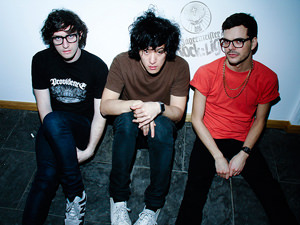Like, Get Over It
According to journalism prof Ted Gup, the prevalence of the word "like" in youth-speak is evidence that teachers have "condemned children to a common cluster of mediocrity." But as linguist Geoffrey Nunberg pointed out a decade ago, "like" isn't a tic or filler, it's "a word with a point of view." (more)
According to journalism prof Ted Gup, the prevalence of the word “like” in youth-speak is evidence that teachers have “condemned children to a common cluster of mediocrity.” But as linguist Geoffrey Nunberg pointed out a decade ago, “like” isn’t a tic or filler, it’s “a word with a point of view.”
Gup isn’t alone in his “contempt” of the word as it is used by teenagers who are well into their 40s. Surely there are plenty of people reading this who agree with the good professor that, “It is the byproduct of a culture that is loath to set standards, pathologically averse to confrontation, and prostrate in the face of precipitously declining verbal and writing skills.”
But maybe there’s a reason people continue to pepper their clauses with “like,” just as those preteens now learning the language eagerly adopt it. Maybe, if we can set aside our in my day prejudices long enough, we might recognize a useful and versatile expression.
As Nunberg, the linguist and “Fresh Air” contributor, explained in a 2001 commentary, “whatever critics and teachers may think, it’s more than just an unconscious tic, or a filler that people stick in while they’re vamping for time. It’s a word with a point of view, and speakers can shut it down when that isn’t what they want to convey.”
Like, says Nunberg, originated with the hipsters of the 1950s, and was spread through popular media to the broader culture. While it may sound mindless, the word conveys numerous meanings depending on the sentence:
To a lot of adults, that was pretty much the way all teenagers were starting to sound. In short measure, critics were making like the symptom of an alarming decline in communication skills among the nation’s young people. That single word seemed to embody all the pernicious influences at work in the culture — lax standards, television, poor manners, and a spreading mindlessness. And it’s true that the teenagers who picked up on like seemed to use it indiscriminately. But there was method in it — one way or another, like lays a certain distance between speakers and their words. Sometimes it can soften a request, as in “Could I, like, borrow your sweater?” Sometimes it communicates disaffection: “Whaddawe suppose to, like, read this?” Or you can use it to nod ironically at the banality of your words, as in, “Do you suppose we could, like, talk about it?” That’s one use of the word that just about everybody has picked up on; I even use it in email.
Like is also used as a quotative marker, as in “I was like, ‘That is so uncool.’ ” That’s something critics hate for lack of understanding, explains Nunberg:
Not surprisingly, this set in motion another wave of denunciations from critics who wondered why teenagers couldn’t say “I said” instead of “I was like.” But those aren’t the same. What follows I said is a report of people’s words; what follows I was like is a performance of their actions. That’s why I was like is as apt to be followed by a noise or gesture as by a sentence. Say is for telling, like is for showing.
Professor Gup doesn’t agree: ” ‘Like’ is merely an adhesive that, ironically, holds together unlike elements. It represents the antithesis of forethought, is inimical to critical thinking, a counterfeit expression, a poseur emboldened by years of self-indulgence and pedagogical neglect.”
It is not pedagogical neglect, but failure to overcome a force that is too functional to be extinguished. It is, dare I say, arrogant for an educator to insist that only he can teach, that the young are incapable of innovation he may not understand. We may not all adore “like,” but maybe if we open our ears a little wider we’ll hear less to hate.
— Peter Z. Scheer
Your support matters…Independent journalism is under threat and overshadowed by heavily funded mainstream media.
You can help level the playing field. Become a member.
Your tax-deductible contribution keeps us digging beneath the headlines to give you thought-provoking, investigative reporting and analysis that unearths what's really happening- without compromise.
Give today to support our courageous, independent journalists.






You need to be a supporter to comment.
There are currently no responses to this article.
Be the first to respond.